Do Swiss pensioners living abroad ‘milk’ the system?
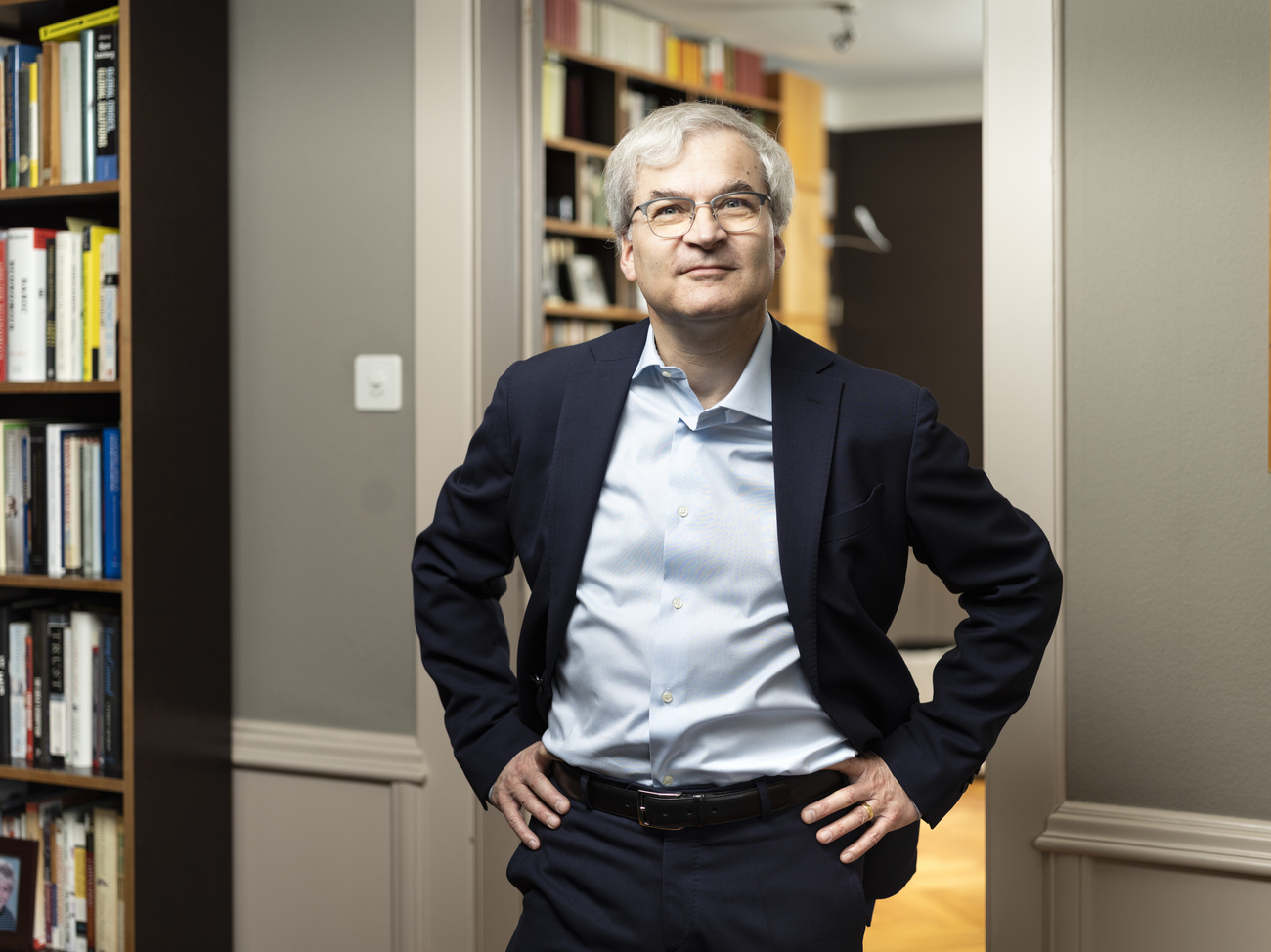
The goodwill of the Swiss towards fellow citizens living abroad appears to have taken a blow as the debate over pension payments heats up in Switzerland ahead of the March 3 votes. SWI swissinfo.ch presents some of the key statistics and arguments.
On March 3, Swiss voters will decide on the initiative for a 13th old-age and survivors (OASI) monthly pension payment. As the debate heats up ahead of the ballot, Swiss pensioners abroad have been in the firing line of some critics who argue that they shouldn’t receive an extra monthly pension payment as they enjoy greater purchasing power than in Switzerland.
A recent chart has caused a storm. It shows that support for the introduction of a 13th monthly pension payment is much stronger abroad than at home: 80% of Swiss expats are in favour of such an additional payment.
It is based on the results of a Swiss Broadcasting Corporation (SBC) poll ahead of the federal vote on March 3. The findings were published a day before right-wing Swiss People’s Party delegates met to decide on their vote recommendation.
Tirade against the Swiss Abroad
The same day the SBC poll was published, Swiss journalist Markus Somm vented his anger by declaring in a podcast that “the Swiss Abroad are the most selfish citizens in the world”.
His political podcast “Bern einfach” has several thousand listeners including many influential right-wing politicians. Somm, who is a member of the centre-right Radical-Liberal Party, is an informal advisor to the leadership of the People’s Party.
On January 26, he launched an unprecedented tirade against the Swiss Abroad:
“It is astounding that they are allowed to keep their Swiss passport. Some of them may have been living in Germany for more than 40 years and may have no connection to Switzerland whatsoever. They don’t pay taxes but are happy to receive a state pension. Swiss expats can make voluntary, and lower contributions to the state pension* and get an additional pension from Germany. It’s a disgrace, and they should be ashamed. I used to think they were good patriots, but the way they want to milk the Swiss government, Swiss employers and Swiss taxpayers is just not on.”
His words had an immediate impact. The following day, Diana Gutjahr, a People’s Party MP, repeated the argument about “luxury pensions abroad” in her speech to the assembled delegation of the party. She argued that pensioners abroad would be the main beneficiaries of a 13th monthly pension payment.
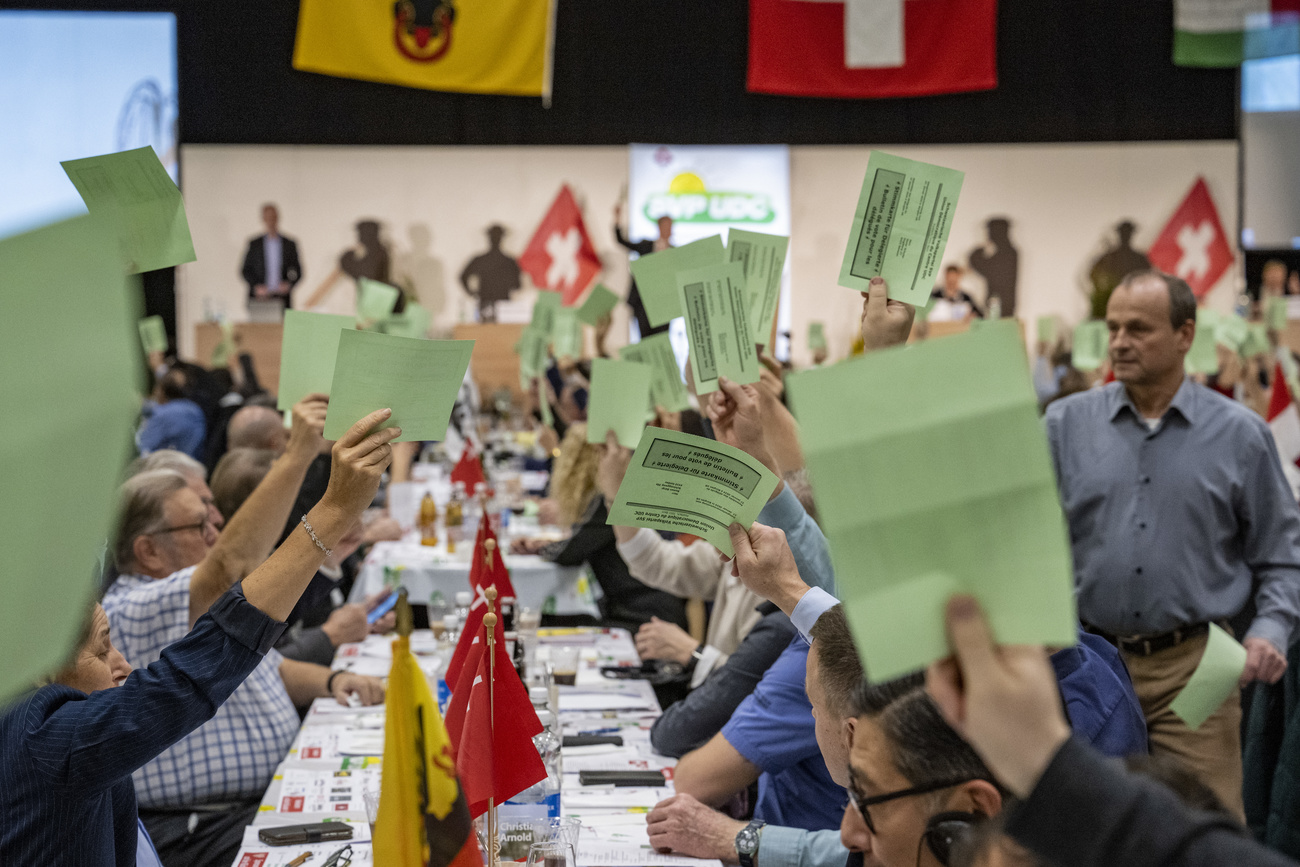
Later, party members decided to recommend a “No” vote for the March 3 initiative, even though it had enjoyed considerable support from the party’s grassroots in previous weeks.
Collateral effect?
Where did this harsh criticism of fellow citizens spring from? Swiss expats appear to have become a collateral target in the campaign against the proposal to introduce a 13th monthly pension payment.
The People’s Party seems to be trying to mobilise voters by using a “foreigner agenda”, stressing the higher purchasing power of pension payments to Swiss living outside the country. “The Swiss Abroad benefit from the strong Swiss franc and lower cost of living,” Gutjahr told the party delegates.
In Turkey or Macedonia, pensioners get a lot more for their money, the party argued. But these are not the most popular countries where the Swiss emigrate to.
Party plays foreigner card
Originally, they targeted all pensions paid abroad and focused on pension payments to migrant workers who had returned to their home countries. Last week, the CH Media publishing group accused the People’s Party of playing the foreigner card.
But in the debate about pension payments, no difference is made between Swiss nationals and the citizens of other countries. Swiss expats have always been in the line of fire, but Markus Somm was the first to directly attack them in his podcast.
But as the chart clearly shows, most Swiss state pensions abroad go to migrant workers who have returned to their home countries.
The share paid to Swiss abroad is comparatively small. In 2022, it amounted to CHF152 million.
Swiss pension payments abroad have risen over the past few years, but not at a disproportionally high rate compared to those at home, as the overall budget of the Swiss state pension system also increased. So, when the People’s Party argues that “pension payments abroad have increased”, it is also true to say that “pension payments at home have increased”.
This does not change the fact that the Swiss Abroad have been forced to defend themselves against attacks by the People’s Party.
Pressure from the Swiss Abroad parliamentary group
There is certain irony surrounding this current debate. One of the driving forces behind the People’s Party’s campaign is the Swiss parliamentarian Martina Bircher who, apart from being a party member, is also the co-president of the Swiss Abroad parliamentary group.
In principle, she is an advocate for the Swiss Abroad and, for example, supports a proposal that aims to improve health insurance.
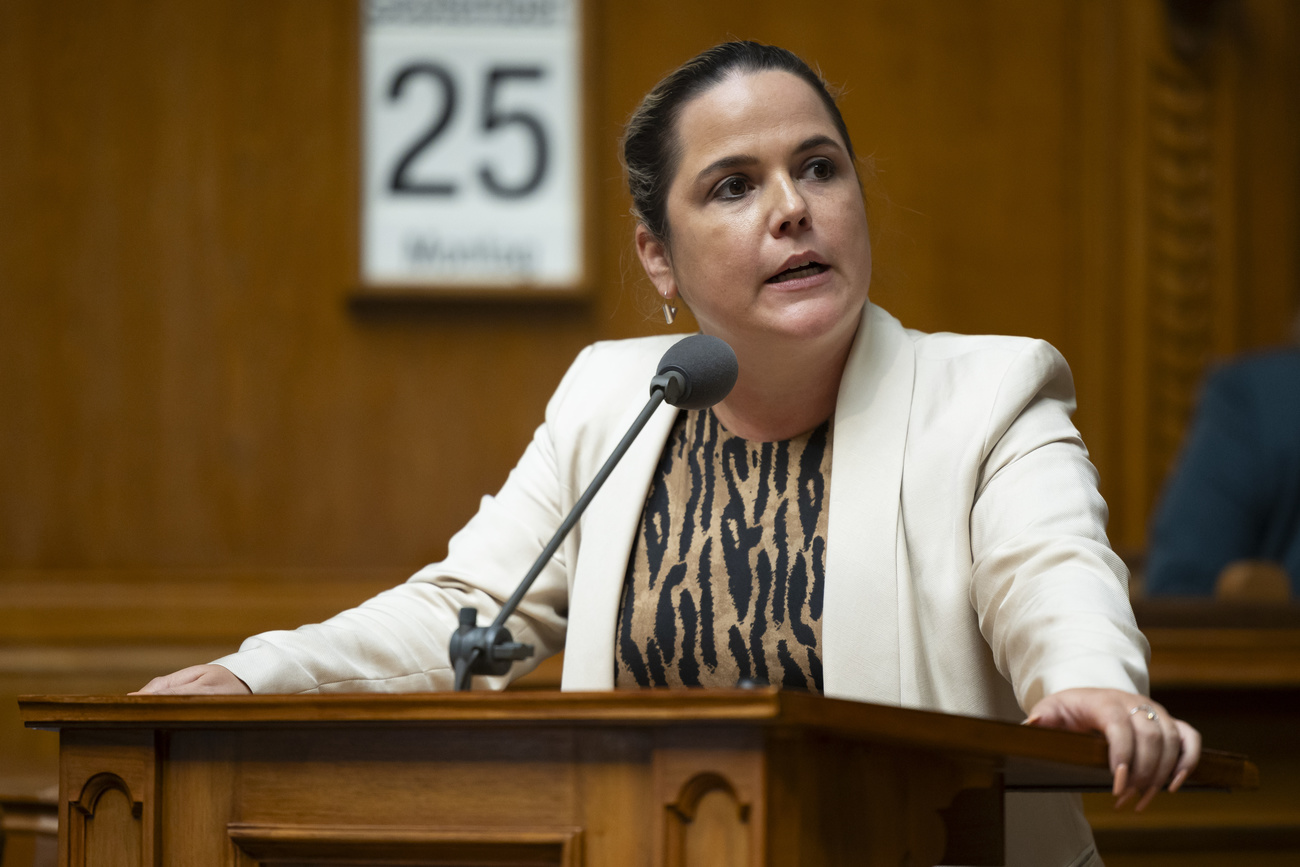
But in the campaign against the 13th pension payment initiative, there is no sign of Bircher’s usual support for the Swiss Abroad. She now calls them “pensioners abroad” who are given a “massive advantage”.
Bircher told SWI swissinfo.ch that she was referring to Swiss citizens abroad as well as to foreign nationals. Bircher will have the opportunity to outline her position on this issue in the upcoming edition of “Let’s Talk”, a debate organised by SWI.
Last week, the online news site 20 Minuten reported on Bircher’s fight against pensions abroad. It asked its readership whether pensions paid to Swiss expats should be adjusted to the Swiss franc’s purchasing power in the respective countries of residence.
Here is their verdict:
The result shows that at least half of the 11,000 Swiss-German respondents do not begrudge Swiss pensioners their living standard abroad, while 40% are in favour of cutting pension payments abroad.
Every seventh franc
The fact that the most popular Swiss news platform asked the question is an indication that Swiss people’s goodwill towards their fellow citizens abroad is no longer certain.
But is the public bashing justified? At the start of the campaign against the 13th pension payment initiative, SWI swissinfo.ch pointed out that the People’s Party had not taken the total pension amount into account. The party argues that almost one in three pension beneficiaries live abroad. According to the following chart, this is correct.
It is important to note that not every third franc paid out in pensions ends up abroad. Only 13.5% of the total amount goes to people who live abroad, which is roughly one out of every seven francs.
This is because the average pension payment abroad is much lower than at home. Looking at the total pension amount, it is clear that pensions paid abroad cost the government about half of pensions paid at home. Pensioners abroad get a relatively small payment.
Emigrating pensioners
“Many Swiss Abroad do not receive luxury pensions,” says Ariane Rustichelli, director of the Organisation of the Swiss Abroad (OSA).
Many Swiss have emigrated because they could barely make ends meet with their pensions in Switzerland.
“We are seeing a trend that an increasing number of Swiss emigrate once they have reached retirement age,” she says.
They have paid their contributions all their lives, Rustichelli says, and therefore have every right to receive a pension. “Their pensions are in line with their contributions, just like with everyone else.” She adds that Swiss expats did not incur any costs for health insurances and did not claim supplementary benefits.
Whatever the Swiss decide on March 3, the debate seems to have only just started. The share of votes from abroad that help determine the result of the 13th pension payment initiative will certainly be closely scrutinised.
At the same time, it is obvious that Markus Somm’s criticisms of Swiss expats’ privileges, such as keeping their nationalities and their right to vote, will not just disappear.
Next on the list: child benefits
The next item on the list is child benefits, which also cost the government a considerable amount of money. They are mostly claimed by fathers who have children when they are retired or have to pay alimony for a child.
Total payments amount to CHF230 million, a third of which is paid out abroad. The parliamentary commission following this issue has just decided to stop these payments.
Rustichelli says she is concerned about the 800,000 Swiss living abroad and wonders whether this could mark the beginning of a campaign against them.
“It worries me when the Swiss go against their own people,” she says.
Adapted from German by Billi Bierling/sb

In compliance with the JTI standards
More: SWI swissinfo.ch certified by the Journalism Trust Initiative










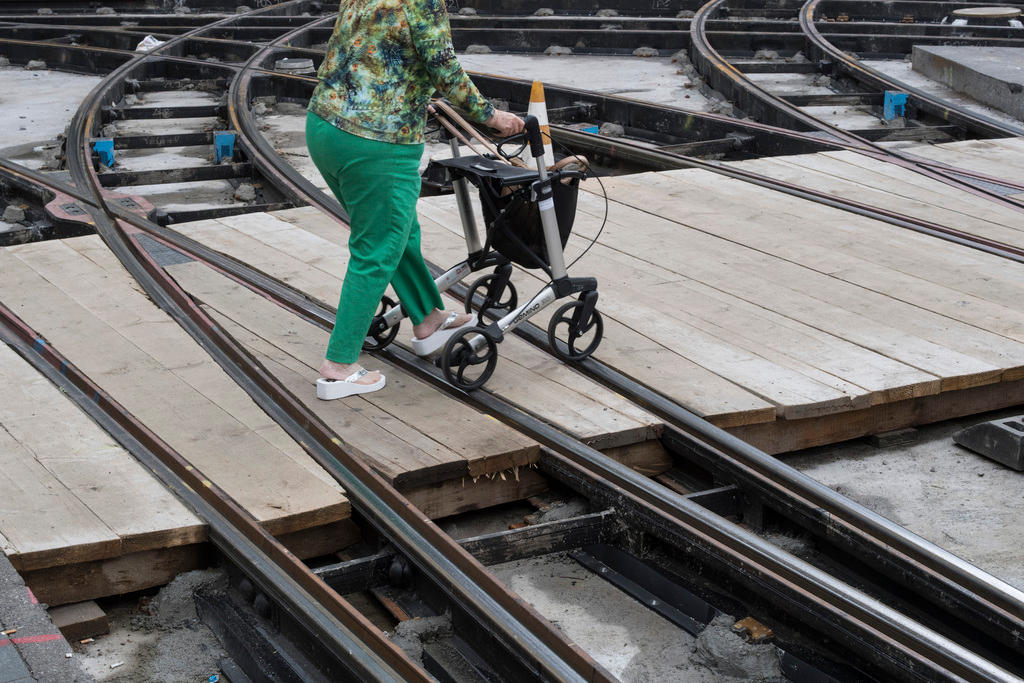
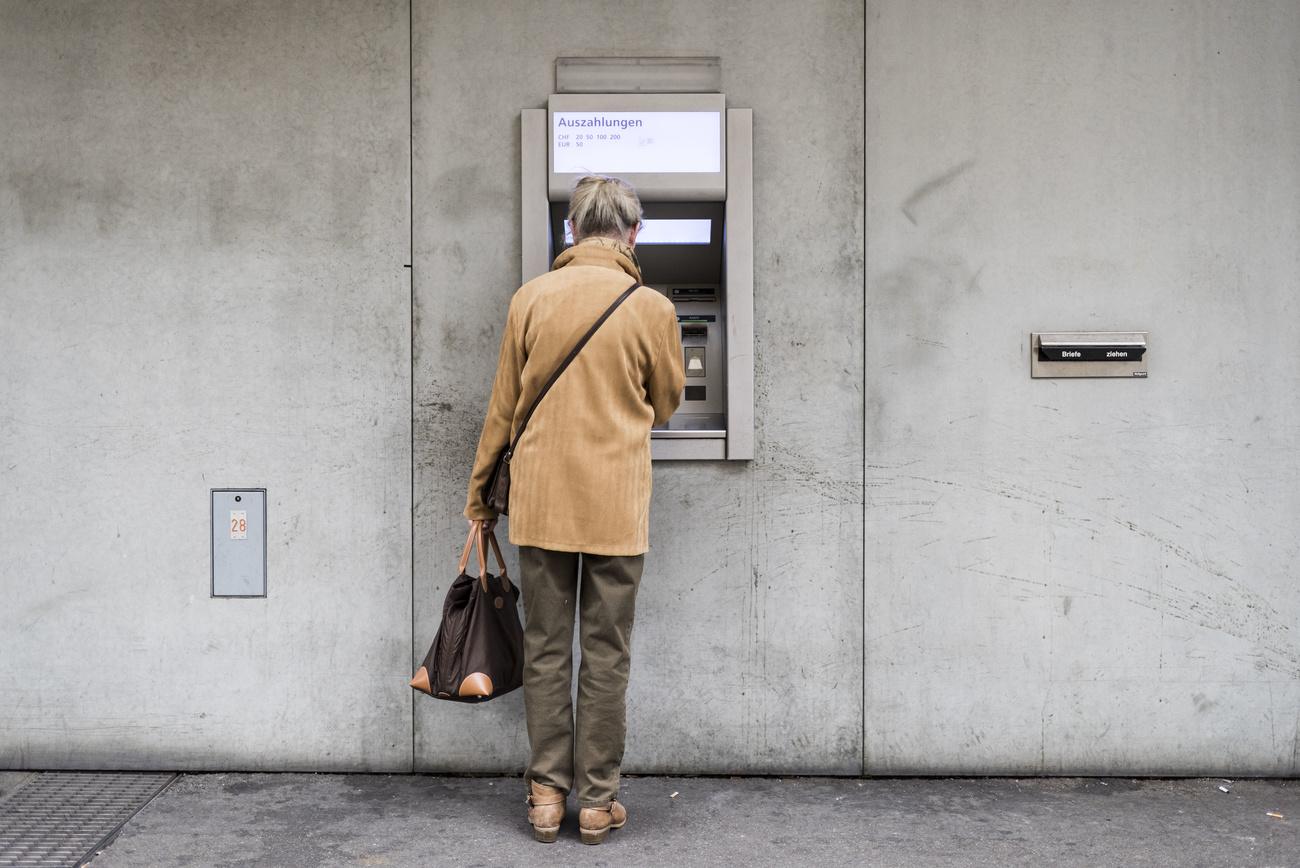

You can find an overview of ongoing debates with our journalists here . Please join us!
If you want to start a conversation about a topic raised in this article or want to report factual errors, email us at english@swissinfo.ch.